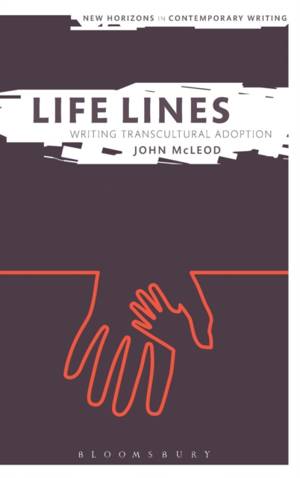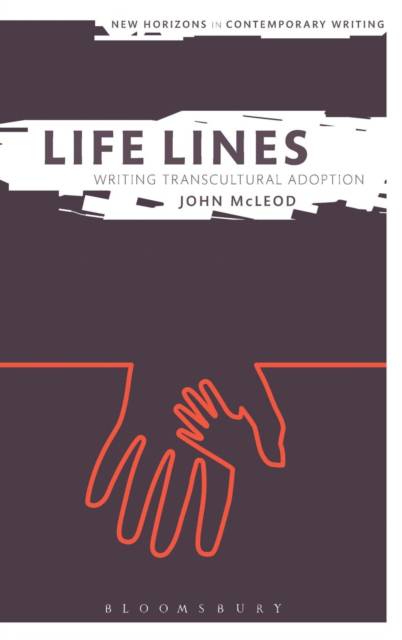
- Afhalen na 1 uur in een winkel met voorraad
- Gratis thuislevering in België vanaf € 30
- Ruim aanbod met 7 miljoen producten
- Afhalen na 1 uur in een winkel met voorraad
- Gratis thuislevering in België vanaf € 30
- Ruim aanbod met 7 miljoen producten
Zoeken
Omschrijving
Adoptions that cross the lines of culture, race and nation are a major consequence of conflicts around the globe, yet their histories and representations have rarely been considered. Life Lines: Writing Transcultural Adoption is the first critical study to explore narratives of transcultural adoption from contemporary Britain, Ireland and America: fictions, films and memoirs made by those within the adoption 'triad' or those concerned with the pain and possibilities of transcultural adoption.
While acknowledging the sobering inequalities which engender transcultural adoptions and the lasting upset of sundered relations, at the same time John McLeod considers the transfigurative and creative propensity of imagining transcultural adoption as radically calling into question ideas of biogenetic attachment, racial genealogy, cultural identity and normative family-making. How might the predicament of 'being adopted' transculturally enable the transformative agency of 'adoptive being' for all? Exploring works by Andrea Levy, Barbara Kingsolver, Toni Morrison, Sebastian Barry, Caryl Phillips, Jackie Kay and several others, Life Lines makes a groundbreaking intervention in such fields as transcultural studies, postcolonial thought, and adoption theory and practice.
While acknowledging the sobering inequalities which engender transcultural adoptions and the lasting upset of sundered relations, at the same time John McLeod considers the transfigurative and creative propensity of imagining transcultural adoption as radically calling into question ideas of biogenetic attachment, racial genealogy, cultural identity and normative family-making. How might the predicament of 'being adopted' transculturally enable the transformative agency of 'adoptive being' for all? Exploring works by Andrea Levy, Barbara Kingsolver, Toni Morrison, Sebastian Barry, Caryl Phillips, Jackie Kay and several others, Life Lines makes a groundbreaking intervention in such fields as transcultural studies, postcolonial thought, and adoption theory and practice.
Specificaties
Betrokkenen
- Auteur(s):
- Uitgeverij:
Inhoud
- Aantal bladzijden:
- 256
- Taal:
- Engels
- Reeks:
Eigenschappen
- Productcode (EAN):
- 9781472590381
- Verschijningsdatum:
- 22/10/2015
- Uitvoering:
- Hardcover
- Formaat:
- Genaaid
- Afmetingen:
- 156 mm x 234 mm
- Gewicht:
- 539 g

Alleen bij Standaard Boekhandel
+ 593 punten op je klantenkaart van Standaard Boekhandel
Beoordelingen
We publiceren alleen reviews die voldoen aan de voorwaarden voor reviews. Bekijk onze voorwaarden voor reviews.








